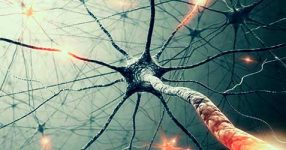In the fast-paced world we navigate, our brains bear the brunt of daily challenges. Surprisingly, the key to maintaining optimal cognitive function lies not just in the tasks we perform but in a simple yet crucial aspect of our lives: our diet. The adage “Better Brain Health: We Are What We Eat” holds profound truth, as emerging research illuminates the intricate connection between nutrition and our mental well-being.
Decoding the Brain-Food Relationship
Unraveling the mysteries of our mental fortitude, recent discoveries underscore the immediate impact of our dietary choices on mental health, moods, and intellectual acuity. Steering clear of “junk food” emerges as a pivotal strategy, transforming our plates into allies for intellectual and mental health. The question echoes: What foods truly enhance our brain functions?
The Neuro-Nutrition Paradigm: A Deep Dive
Venturing into the realm of neuro-nutrition, a burgeoning field of study, reveals the essentials for achieving a healthy brain and neurocognitive function. Antioxidants, vitamins, and similar compounds present in certain diets emerge as potent tools in the battle against neurodegenerative diseases such as Alzheimer’s. The Mediterranean diet, renowned for its emphasis on vegetables and fish, stands out as a prime example, providing optimal nutrition for the brain’s small grey cells.
Omega-3 Fatty Acids: Guardians of Brain Vitality
Amidst the plethora of dietary advice, the spotlight turns to omega-3 fatty acids, abundant in fish. These essential nutrients not only protect nerve cells but also play a pivotal role in brain development. The profound notion that the brain is what it eats challenges us to reconsider our dietary choices for the sake of cognitive longevity.
Nutrition’s Impact: From Womb to Adulthood
As we delve deeper, the connection between pre-natal nutrition and cognitive outcomes becomes apparent. A study of 23,000 pregnant women unveils the repercussions of sweet, sugary foods on the child’s future cognitive well-being. Likewise, deficiencies in dietary intake manifest cognitive issues in laboratory mice, emphasizing the long-reaching effects of nutrition even before birth.
In a world enamored with processed foods, research highlights the disconcerting imbalances induced by high fructose corn syrup. These imbalances, expressed through aggression and agitation, signal a dire need to reassess our reliance on industrialized diets.
A Glimpse into a Nutritional Future
Can nutrition emerge as a potent force against societal issues like crime? The documentary “Better Brain Health: We Are What We Eat” takes us on a captivating journey to the Netherlands, where a researcher explores the impact of nutrition on criminal behavior. The findings, though preliminary, hint at the transformative potential of dietary interventions.
The film culminates in insights from an international panel of nutrition experts, advocating the power of a proper diet in regulating mood, impulse control, and decision-making. Through inventive laboratory experiments, the documentary underscores the tangible connection between nutrition and cognitive function.
Retraining Our Brains for a Healthier Tomorrow
“Better Brain Health: We Are What We Eat” directed by Raphaël Hitier encapsulates a transformative exploration into the intricate relationship between nutrition and cognitive well-being. As we absorb the revelations presented, the imperative to reevaluate our dietary choices becomes apparent. In understanding the significance of nutrition, we unlock the potential to retrain our brains, paving the way for healthier alternatives and a brighter cognitive future.












